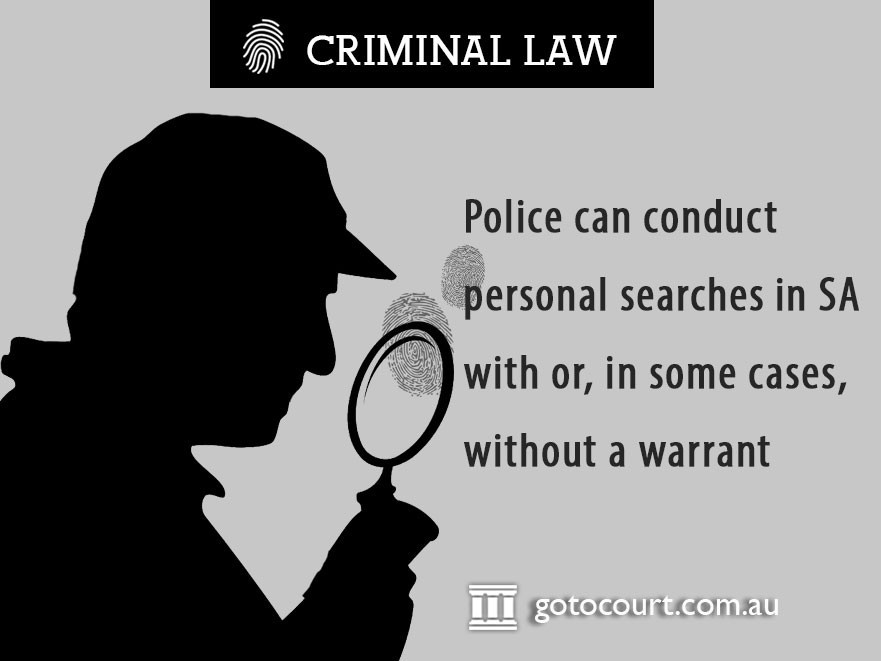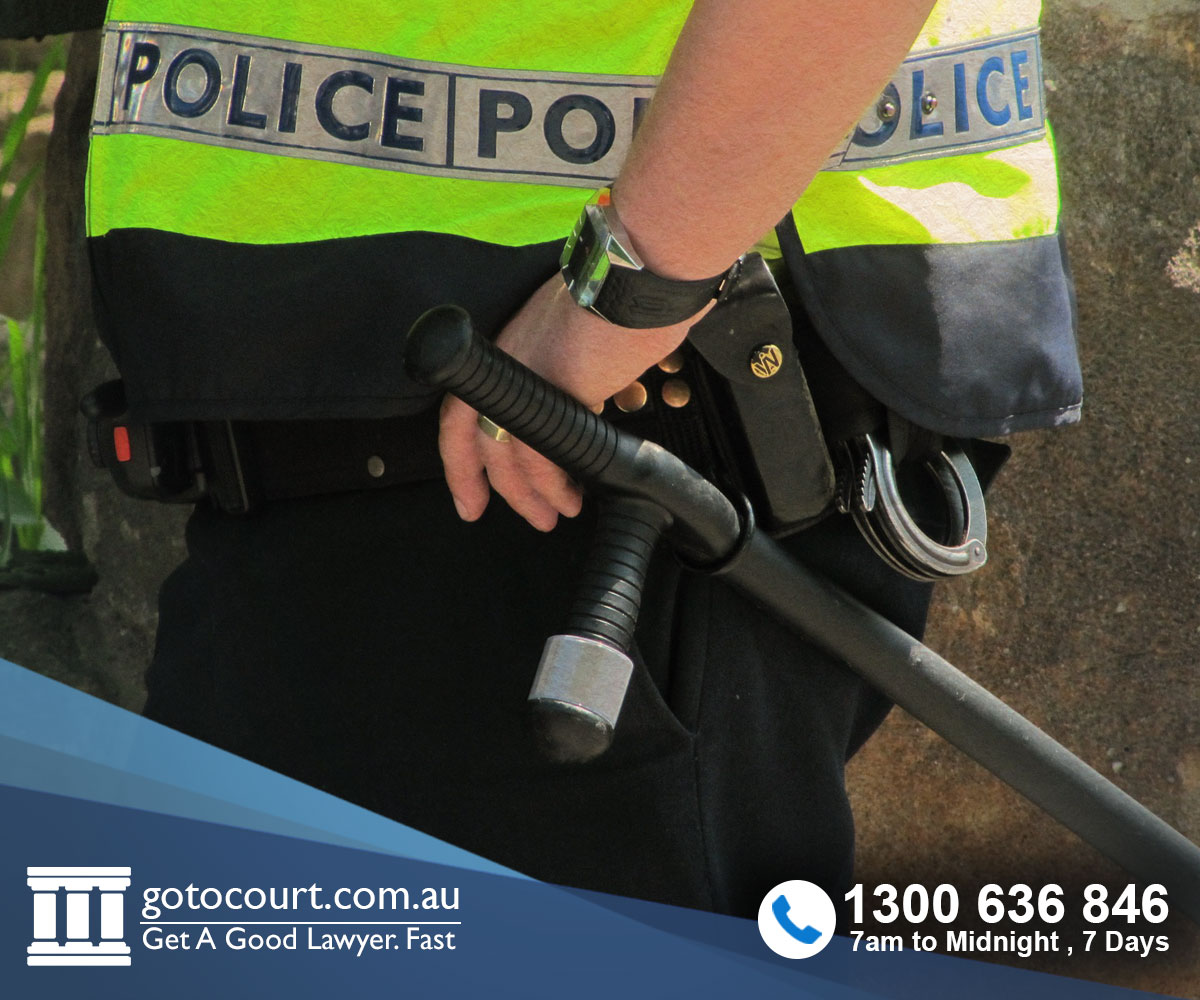Personal Searches in South Australia
Police powers to conduct personal searches in SA (South Australia) are authorised by the Summary Offences Act 1953, the Controlled Substances Act 1984, and the Criminal Law (Forensic Procedures) Act 2007.
Generally, a person must have been arrested before they can be searched. However, police may search people without arresting them:
- if they have a reasonable belief that the person is in possession of drugs, precursors (ingredients), or drug equipment
- to search for weapons
- to search for stolen property, or
- to prevent serious violence.
Searches using a metal detector
Police have the power to conduct personal searches in SA to investigate weapons offences. They may search the person and property of anyone who is in, or is attempting to enter or leave:
- any licensed premises
- declared public place, or
- the car parking area for one of those places.
In the first instance, the searcher must use a metal detector. If that shows the likely presence of metal, police will ask the person to show the items detected. If they refuse, police may then search the person and their property.
Special powers to prevent serious violence
Police may search the person and property of anyone attempting to enter or leave an area if they believe on reasonable grounds that a group or groups of people may engage in serious violence or assaults in the area and general search powers are necessary to stop that happening.
Drug detection personal searches in SA
A roadside drug detection point may be set up at any time by police. It must have facilities and warning devices so that vehicles can be stopped in a safe and orderly manner for testing to be conducted.
If police suspect that an area is being or will be used for the transportation of drugs including precursors (ingredients) or plants, they can enact their powers to set up a roadside test point. This will operate for up to 14 days but may be renewed for up to a further 14 days. Once authorised, they may stop any vehicle and carry out general drug detection on it and any persons or property in it, and may use a drug detection dog.
Police can also carry out general drug detection in the area and may search any person who is in, or is attempting to enter or leave the area, as well as any property in their possession.
They can also carry out drug detection in licensed premises or public venues including the car-parking area, or on any public transport to the area.
Searches in custody
A person who is taken into custody may be searched and anything found as a result of the search may be removed. Personal searches in SA may only be carried out by a police officer, who may use such force as is reasonably necessary and may be assisted by a second police officer or another person.
Intimate and Intrusive searches
An intimate search means a search of the body that involves exposure of or contact with the genital or anal area, the buttocks, or the (female) breasts.
An intrusive search means an internal search that involves introducing anything into a bodily orifice and an ‘intimate intrusive search’ means an internal search that involves the vagina or the rectum. An intrusive search or an intimate intrusive search must be conducted by a medical practitioner or registered nurse, and the detainee must be given the opportunity to arrange, at their own expense, for a person of their choosing to witness the search.
Provisions relating to intrusive personal searches in SA
Unless in the opinion of the police it isn’t reasonably practical, when intrusive searches are conducted:
- a solicitor, adult relative, or friend nominated by a person must be present if the person is a minor
- if the person isn’t fluent in English, they must be informed of their right to an interpreter
- it must be carried out by someone of the same sex (unless the person requests otherwise)
- it must be videotaped (the part of the search involving the intimate intrusive search won’t be recorded if the person objects). Before it starts, the person must be given a written statement outlining the benefits of recording the search and advising that they can object to the recording. This must be read to them (by an interpreter if necessary). The person must be given a written statement of their right to have the videotape played to them and/or their legal adviser, and to get a copy if they wish.
- if it isn’t recorded, the police must make a written record, documenting everything found on the person and everything said and done by everyone present. As soon as practicable after the search, the record is read to the person and the reading recorded on videotape. The person can interrupt at any time to point out errors/omissions. If the police agree that there is an error or omission, the record is corrected. If they don’t agree, it must be noted.
Offences relating to videotapes
Except for the purposes of investigating any offence or for legal proceeding, a videotape recording of an intrusive search must not be played to any person not involved in the search. The penalty for doing otherwise is a fine of up to $10 000 or imprisonment for 2 years.
The videotape must be destroyed if the Commissioner of Police is satisfied that it is not likely to be needed for investigating an offence or for legal proceedings, or if a court or tribunal orders.




